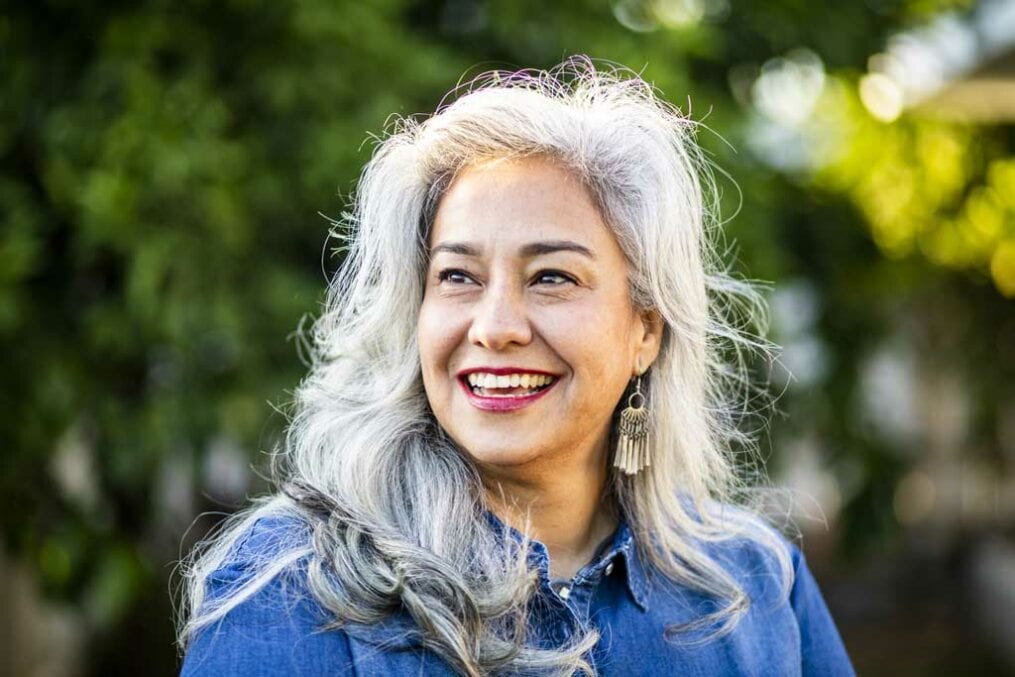Wrinkles. Dermis. Blinks. However, when was the last time you heard someone ask for menopause beauty tips? Menopause is a life stage as pivotal as puberty, with its own set of paradigm shifts for hormones. Things are slowly changing thanks to a small group of high-profile women breaking the silence on their own menopausal journeys. Here are some beauty tips for Women Going Through The Menopause.
Rising awareness of perimenopause – the years or months before menopause – has forced beauty brands to pay attention. It’s no coincidence that 58 percent of beauty buyers are over 45 – a dated anti-aging message won’t do.
At menopause, estrogen levels fall, affecting women physically and mentally. Oestrogen levels fall, revealing male sex hormones like testosterone, causing changes in skin and hair. But there’s good news. We have a lot to be happy about with the way things are going.

Skincare for menopause
Dry skin attacks
‘Hyaluronic acid, an important part of skin hydration, is lost during menopause,’ says consultant dermatologist Dr. Justine Hextall. ‘We also lose skin-sealing fats like ceramides. These surround the skin barrier’s “bricks”. Skin becomes drier and less able to retain water as we lose fat. ‘ Apply hyaluronic acid-containing products to slightly damp skin to boost their hydrating effect, then follow with a rich cream to support the skin barrier.
When a teen erupts
It’s not uncommon for the lower half of the face to get oilier with breakouts. ‘Hormonal imbalance is the main cause of menopausal acne,’ says Dr. Hextall. So there’s a relative imbalance. Stress and lack of sleep (insomnia is common in menopause) are other common triggers. Cosmetics containing oil can cause acne in some women, according to dermatologist Dr. Zainab Laftah of the British Skin Foundation. ‘If using a salicylic acid cleanser does not help, consult a dermatologist about hormonal therapy.’
Ample fine lines and wrinkles
Wasn’t aware that wrinkles are linked to a drop in estrogen? ‘Studies show that up to 30% of collagen is lost during menopause,’ says Dr. Hextall. While this may initially result in more visible lines, it can eventually cause sagging as facial fat moves downward. Dr. Hextall recommends various treatments to promote new collagen. ‘IPL (intense pulsed light) can treat thread veins and sunspots, while micro-needling can be used to brighten and hydrate.’ Topical retinoids (vitamin A) can help stimulate new collagen production and reduce wrinkles, says Dr. Laftah.
When not to burn
The skin’s natural ability to protect itself weakens with menopause. ‘Oestrogens are important antioxidants, protecting against free radical damage from UV or pollution,’ says Dr. Hextall, whose menopause beauty tips include sun protection. Protect against UVB and UVA with a high SPF, she advises. Sun damage leads to pigmentation issues. « Hormonal changes and cumulative sun damage can cause melasma,’says Dr. Laftah. Dr Hextall recommends using a broad-spectrum sunscreen with vitamin C in it to combat UV damage.
You’re flushed
Hot flushes aren’t a skin issue per se, but they are part of a larger story of sensitivity that can spike during menopause. Dermal pH changes as hormones shift, says Dr. Hextall. ‘Changing the naturally acidic barrier makes the skin drier and loses more water. It may be more sensitive and have thread veins. Menopause is another common time for rosacea. ‘ Flushes occur when the blood vessels suddenly dilate to increase blood flow. Scientists believe this vascular shift is due to unknown neurotransmitter activity changes caused by erratic hormones.
Haircare during menopause
When your drain clogs
Hair, like skin, is vulnerable to menopause. ‘By our mid-40s, we’re exhausted and stressed from daily life,’ says trichologist Cheryl Mackie. A hotter head and increased perspiration can cause an oily or sweaty scalp, leading to root level breakage.
So, what is it? In the early stages of menopause, many women experience diffuse shedding due to a lack of estrogen, says Anabel Kingsley, consultant trichologist at Philip Kingsley. A lower estrogen level means a more androgen-heavy environment for hair. Androgens are not good for your hair. They can cause follicle shrinkage and finer hair growth in women with a genetic predisposition to follicle sensitivity. ‘
According to Mackie and Kingsley, good nutrition and stress management are essential.

